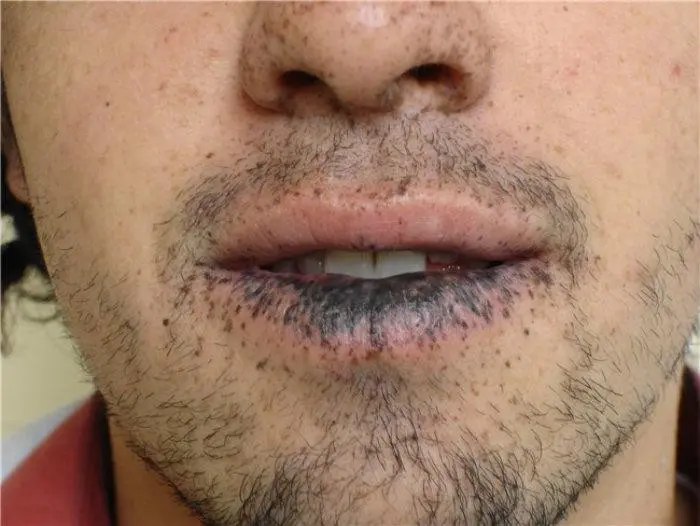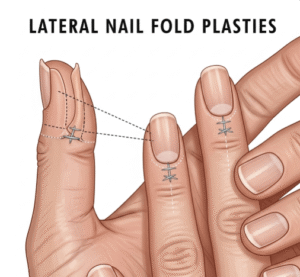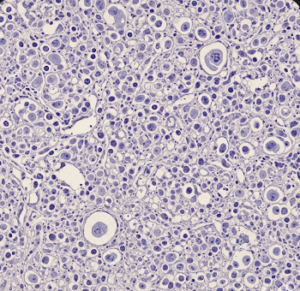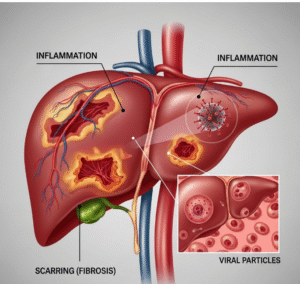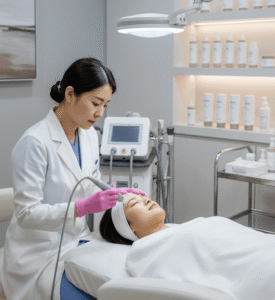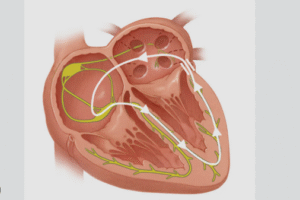Overview
Alcaptonuria is a rare inherited metabolic disorder in which the body cannot properly break down two amino acids — tyrosine and phenylalanine — due to a deficiency of the enzyme homogentisate 1,2-dioxygenase (HGD). This leads to the accumulation of a substance called homogentisic acid (HGA) in the body, which can deposit in tissues and cause damage over time. The condition often leads to dark urine, early-onset arthritis, and discoloration of connective tissues, a phenomenon called ochronosis.
What is Alcaptonuria?
Alcaptonuria is a genetic disorder caused by mutations in the HGD gene. The inability to break down homogentisic acid causes it to build up in the body, especially in bones, cartilage, and urine. Over time, this buildup can lead to severe complications, particularly affecting the joints and heart.
The condition is autosomal recessive, meaning a person must inherit two copies of the defective gene (one from each parent) to develop the disease.
Symptoms
Symptoms of alcaptonuria may vary but typically include:
- Dark-colored urine (especially noticeable after standing)
- Bluish-black discoloration of connective tissues (ochronosis)
- Early-onset arthritis, especially in the spine and large joints
- Chronic joint pain and stiffness
- Discoloration of the ear cartilage or sclera (white part of the eye)
- Kidney or prostate stones
- Heart valve disease (in older individuals)
Symptoms usually become more noticeable after age 30.
Causes
Alcaptonuria is caused by a mutation in the HGD gene, which provides instructions for making an enzyme needed to break down homogentisic acid. Without enough of this enzyme, HGA accumulates and causes tissue damage.
The defective gene must be inherited from both parents to cause the disease.
Risk Factors
- Genetics: Having both parents as carriers of the HGD gene mutation increases the risk.
- Consanguinity: Offspring of closely related individuals may have a higher chance of inheriting two copies of the defective gene.
- Geographic Prevalence: Higher incidence in certain populations, such as in Slovakia and the Dominican Republic.
Complications
If left unmanaged, alcaptonuria can lead to:
- Severe osteoarthritis and joint degeneration
- Heart problems, including aortic or mitral valve disease
- Kidney, bladder, or prostate stones
- Discoloration and stiffening of connective tissues
- Spinal abnormalities like scoliosis or kyphosis
- Hearing or vision problems (in rare cases)
Prevention
There is no way to prevent alcaptonuria if a person inherits the defective genes. However, steps can be taken to reduce the impact of the disease:
- Genetic counseling for at-risk couples
- Prenatal genetic testing (if family history is known)
- Early diagnosis to manage symptoms and delay complications
Treatment Options Korea
1. Diagnosis and Monitoring
- Urine homogentisic acid (HGA) test for confirmation
- Genetic testing (HGD gene mutation) available in specialized centers
- Regular monitoring of joint, heart, and kidney function
2. Dietary Management
- Low-protein diet to reduce intake of phenylalanine and tyrosine
- Dietary guidance provided by clinical nutritionists in Korean hospitals
- Vitamin C sometimes recommended to slow HGA accumulation (limited evidence)
3. Symptomatic and Supportive Care
- Pain management for joint stiffness and early-onset arthritis
- Physical therapy to maintain joint mobility and function
- Orthopedic care for chronic joint degeneration (e.g., knee or hip replacement)
4. Nitisinone (Off-label Use)
- Nitisinone reduces HGA production by blocking tyrosine metabolism
- Not officially approved for alkaptonuria in Korea but may be accessed under compassionate use or research protocols
- Requires close monitoring of tyrosine levels and liver enzymes
5. Cardiac and Renal Surveillance
- Periodic evaluation for:
- Aortic or mitral valve calcification
- Kidney stones or prostate stones
- Imaging and lab tests done during routine follow-up
6. Genetic Counseling and Family Screening
- Offered through genetic clinics in tertiary hospitals
- Especially important for family members or future pregnancies

